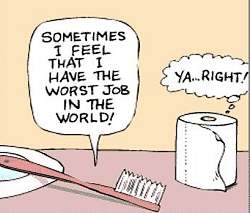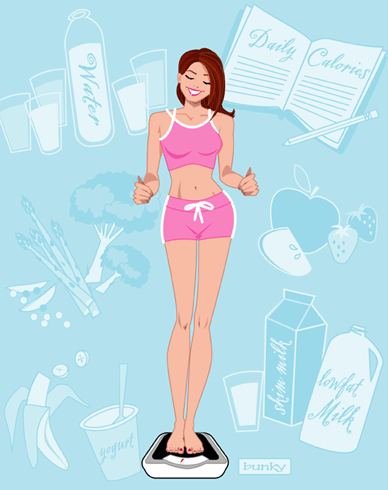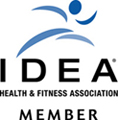OK, so I confess. I stole the entertaining video (at foot of article) from my beautiful young friend, Aubrey, who by the way is an amazing writer and artist.
Dental Hysteria
Considering I've lived in a dentist chair most of my long, and I stress LONG life, this video just tripped me out in laughter. Why didn't they have this stuff when I was a kid suffering through those heartless dentists and their Nazi tactics? Sorry, Doc, I know you are not one of them. Neither are you, Rusty! Yes, I'm overdue for my ck-up. ugehrhoeroeuoui!
What ever that kid in the video is on reminds me of the 70s. hmmmm, wonder why? Are dentists allowed to give out LSD?
What's In And On Our Teeth?
Besides dentin, enamel, and saliva? I wonder if my dad is lurking around in there somewhere. His DNA, that is (he had problem teeth). While some have little or no issues with their teeth, others are permanent fixtures in the dental chair. And I believe, as research seems to point to, that genetics play a part.
Have you noticed that one person can get by with no cavities all of their lives, like my sister in law, who is ten years older than I am. Yet, I have had more cavities than my pool has had leaves. To top it off, people like her remain cavity free with little dental care. I recall one friend disclosing, "My husband never flosses and barely brushes, and has perfect teeth, while I ALWAYS brush and floss, and am best friends with abscessed teeth!"
Yes, I know that foods factor in as well. Sugary substances have increased cavities mega-fold. Cavities have invaded man's life since time began. But they became pandemic (an epidemic spread over a wide geographic region) with the establishment of sugar plantations in the 1700s in the "New World." Subsequently, tooth decay affected yet greater numbers of people with the widespread cultivation of the sugar beet in Europe (animated-teeth).
Quite honestly, I would like to put dentists and sugar companies out of business. After Doc and Rusty retire, of course.
And hopefully, research will begin to take a more serious look into the genetics/predisposition of dental issues. Clk here for more research info. Take note of how saliva affects our dental health.
Let's Brush Up On Our History!
Have you ever wondered how long tooth brushes have been in existence? Probably not. I know, I'm weird! Just in case, you are curious!
- Babylonians as early as 3500 BC used "chewingsticks" made out of twigs.
- Chinese literature reveals a newer updated brand made out of twigs, looking something like a pencil at around 1600 BC. One end of it was chewed, which gave it a brush like advantage, while the other end was pointed to pick! They were made from aromatic trees for a tastier experience! Hmmm, the Chinese are always ahead of the class.
- The first "real" toothbrush was invented by first invented by the Chinese in the XVth century and brought back to Europe by travellers. If you liked the "hard" brush, you could pick the bristles made from the boar. If you were a "soft" kind of brush, you could pick from bristles made from horse hair. Actually, the wild boar was put through it the most even up to the 20th century. Imagine.
- Then came the European use of toothbrushes in the seventeenth and early eighteenth centuries. The first toothbrush mass-produced was made by William Addis of Clerkenwald, England. Addis, and later, his descendants, manufactured the finest English brushes.
- America joined the "cleaning" when H. N. Wadsworth in 1857 patented the first toothbrush.
- Companies began to mass-produce toothbrushes in America around 1885.
- Switzerland continued the evolution with an electric toothbrush in 1939. In 1960, Americans were introduced to an electrical toothbrush made by U.S. company, Squibb.
- Currently, there is a flurry of most any kind of toothbrush one could imagine. Some even light up, like my grandchildren have. Some sing. Wonder when they will pick up bristles and dance? For me, the electric is the best. After you get used to that weird vibration sensation, the rest is a joy ride.
While there are many other OTC "dental" products ranging from toothpaste, tooth gel, mouth washes of every sort, flosses galore, toothpicks of all shapes and sizes, and brighteners being the new kid on the block, I'll leave those for another day of research. Aren't you glad?
Sources for toothbrush history : L’origine merveilleuse des choses de tous les jours, Charles Panati, Éditions F1RST, 1989. Le livre mondial des inventions, sous la direction de Valérie-Anne Giscard d’Estaing, Éditions Fixot, 1996 et 1997.
Brush Your Health Away?
Would that be "good" health or "bad" health? Obviously, brushing our pearly whites keeps bacteria away. A brush a day keeps bad health at bay? or A brush a day keeps bacteria away? We must embrace more than: A brush a day keeps bad breath away.
Research over the past decade has without question discovered the link between oral and physical health. Yes, more evidence is needed, but what we do know is that there is definitely a bridge between the two. The most noted studies have proven that the more advanced gum disease, the higher the risks of heart disease, diabetes, stroke. You might find it surprising low-weight babies and pre-term babies are included in this high risk category.
One theory suggests gum disease may be the red alert for disease development elsewhere in the body. Yet another theory considers bacteria slipping past the gum line and entering the blood stream.
Dr. Darryl Smith, pres. of the Canadian Dental Association, notes, "The thought is that bacteria that cause gum disease are also found in the body, and can cause inflammation and infection in the same way." He reminds us that times have changed, "...now we know that diseases that affect the mouth, can also affect other parts."
Gum Disease:
- Seems to worsen blood sugar control in diabetics.
- Increases the risk of cardiovascular disease, especially stroke, by 1.04-to 2.8.
- Increases the risk of preterm birth by 4 to 7.9 times.
- Creates fertile ground for bad breath, which if you think about it, is definitely an alert that something is probably amiss in our body's immune system.
Benefits From Brushing, Flossing, and Your Dental Check-ups
- Yes, hopefully fresh breath for our next kiss or close encounter!
- Keeping our teeth clean, keeps bacteria from getting a foothold. Consider not brushing after a meal? Twice a day? Even once a day? Which by the way, most people fall into the last category. Does it matter? It does if we consider bacteria start to build up on our teeth within 20 minutes of eating.
- Preventing oral plaque; it begins to harden into tartar within 24-36 hours. What's the harm if we can go to our trusty dental hygienist (Hi Lindsey!), and have her carve away the debris? Because once the tartar begins to cling to the gum line, bacteria start invading and multiplying.
- All of these will support over all wellness.
NOTE: A single human mouth can contain more microorganisms than there are people on planet Earth. While you can't sterilize your mouth, you can minimize your potential for having tooth decay. To understand more about tooth decay, clk here.
At Home Dental TIPS:
- Brush after meals and snacks when you can.
- Drink water when you can't. Drink water, period. Especially if you have dry mouth.
- Chew a piece of sugarless gum after a meal. Research shows that it helps loosen debris and is a good way to boost salivary flow. The sugar substitutes found in this type of gum is not readily fermented by the bacteria.
- Limit snacking. Limit foods and liquids with sugar substances.
- Floss before brushing. Rinse with mouth wash.
- Definitely brush, floss, and rinse before retiring to bed. You produce less saliva at night, leaving your mouth wide-open for xtra bacteria/dental plaque.
- Consider rinsing with or brushing with fluoride, but never swallow it.
- Refrain from keeping mints or candy in your mouth for long periods.
Your health. Maybe even your life.
For Info on dental materials such as fillings, etc. clk here.
For good questions to ask your dentist about dental materials, clk here.
Referred Dentists: Doc M. Parker, VA; Doc R. Glenn, TX. I better run make an appt!
Don't forget the cute video of this young man's post-dentist chair experience. Oh my! (Thanks, Aubs!)
***You'll want to turn off my PlayList at the bottom of the blog. Click upper left hand icon on the PlayList.
Copyright © 2008 by Pilates Worx 4 Life. All rights reserved. Check out website: www.pilatesworx4life.com








 Enjoy
Enjoy











